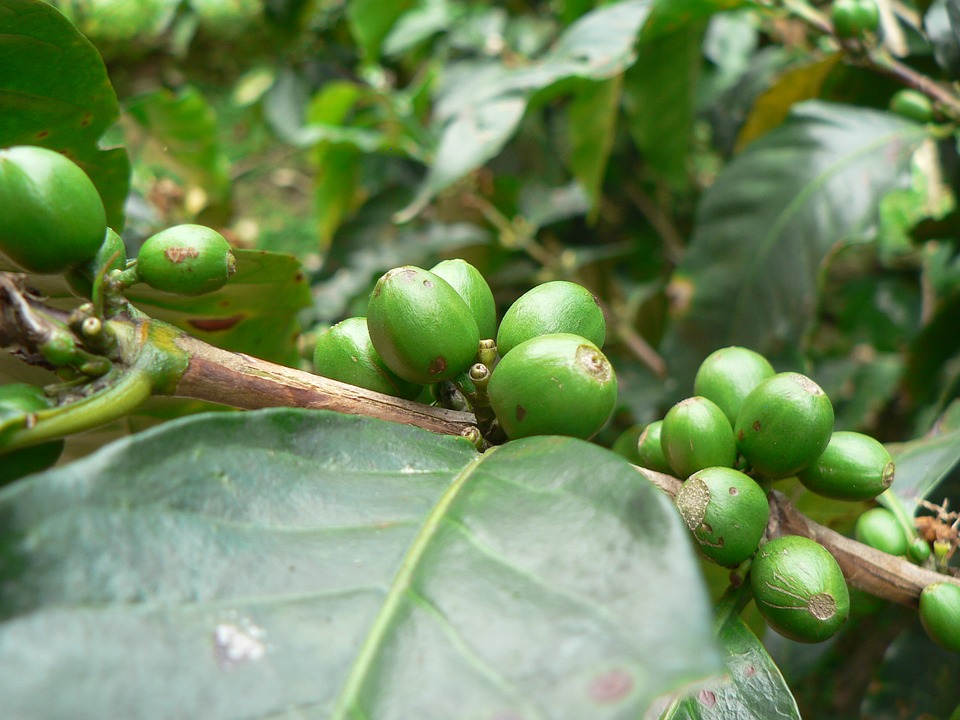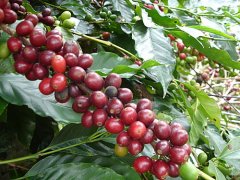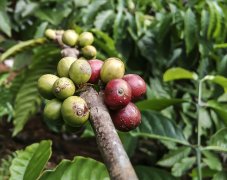Ethiopia Rosa Village Manor # 1 the unique flavor of wild Rosa describes where Rosa Village is.
For professional baristas, please follow the coffee workshop (Wechat official account cafe_style)

Product name: garden geisha in Rosa Village # 1 Gesha Village Geisha#1
Country: Ethiopia Ethiopia
Producing area: Rose summer Gesha
Grade: Grade 1
Treatment method: sun treatment method Natural Process
Species: wild geisha Wild Geisha
Altitude: 1900-2100 m
Flavor: passion fruit, bergamot, jasmine
The journey to Gesha Village began in 2007 when Adam Overton and Rachel Samuel helped the Ethiopian government shoot a documentary about Ethiopian coffee. In the course of filming, they first met Dr. Dr. Girma, and they visited the Gera Coffee Forest near Jimma. Dr. Dr. Girma is a coffee researcher with a wealth of information about coffee agriculture and farm management. In the course of their documentary, Rachel got to know the country where she was born, while Adam was fascinated by the rich history of the birthplace of coffee.
As the whole coffee trip is coming to an end, they are eager to open their own coffee farm. They see too much untapped potential and opportunities in the wild coffee forests of Ethiopia. Even though the country's coffee trade has been growing for a long time, Ethiopia's coffee industry still lags far behind new coffee producers in terms of agriculture, innovative processing processes and local differences. This is the main difference between commercial coffee and boutique coffee. Adam and Rachael targeted the boutique coffee market and established the Rose Summer Village Coffee Manor (Gesha Village Coffee Estate).
From 2007 to 2010, they have been looking for their ideal place. One of the first conditions is the transportation function, and the farm must be close to the capital (Addis Ababa). There are several other aspects to consider:
Altitude: between 1800 and 2100 meters above sea level.
A relatively large area of land (over 100 hectares).
An old tree / native tree.
There are already shade trees.
There are roads.
There is a pipeline to the port.
No residents have been displaced.
When they visited countless places, they found that they were step by step away from the capital. Finally, they found the city of Gesha Town, which is very close to the border between Ethiopia and Sudan. In this western part of Ethiopia, they found wild coffee growing in forests that had never been exploited. It can be called a coffee paradise, and after meeting some local aborigines, they decided to develop in this place. In the fall of 2011, they signed the 471-hectare Rose Xia Village Manor (Gesha Village Estate). Soon, they hired the farm manager-Akalu. The Gesha Village (GV) team began a forest exploration, where they picked up wild seeds from the nearby Gori Gesha forest.
After a year of breeding, the seeds were planted on 30 hectares of land. At the same time, the team began to get to know the local residents who lived nearby. The first 30 hectares was a small area for the GV team to test first. In the spring of 2012, the first kilogram of samples after the harvest were sent to Willem Boot, a friend of Adam and Rachel, before they had even tested the cup. Willam is organizing a cup test in Ethiopia, and all the participants are amazed by the cup of coffee. As a result, the GV team knew they were doing something special and meaningful.
To learn more about the land, the GV team decided to visit their nearby coffee farm to try to learn more about the nearby coffee varieties and to get seeds from the nearby forest. The team gradually learned that growing any variety was risky, along with the advice of Akalu and Dr. Girma. The team decided to plant a large part of the Ethiopian native species (Ethiopian Heirloom) released by JARC (Jimma Agricultural Research Center). These varieties are from many varieties collected during the JARC expedition. During the cup test, the GV team felt that the coffee produced by Gesha Vilaage was the most amazing. Since varieties play such an important role in flavor, it is the right step for the reasonable GV team to find a research partner to study the genetic research of Gesha forest varieties, and part of this study seems to illustrate the link between Panamanian geisha and Gori Gesha forest.
Important Notice :
前街咖啡 FrontStreet Coffee has moved to new addredd:
FrontStreet Coffee Address: 315,Donghua East Road,GuangZhou
Tel:020 38364473
- Prev

2017 Jadeite Manor bidding batch 1 (washing bidding Group) Panama La Esmeralda
For the exchange of professional baristas, please follow the Coffee Workshop (Wechat official account cafe_style) Panamanian Emerald Manor Panama La Esmeralda Jade Manor (Hacienda La Esmeralda). The land was first acquired by a Swede Hans Elliot in 1940. This piece of land covers an area of several hundred hectares, which is now Palmira and Caas Verdes Manor.
- Next

El Salvador Pyrenees Estate Sunburn Lot #14 Double Estate Cooperative Processing Beans
Weixin Official Accounts cafe_style Name: Pyrenees Estate Sunlight Batch #14 Los Pirineos Natural #14 Country: El Salvador Production Area: Berlin Ursula Dan Uslatan Grade: Screen 15 or above, Zero Defect Treatment Method: African Scaffold Sunlight Treatment Natural Proces
Related
- Does Rose Summer choose Blue, Green or Red? Detailed explanation of Rose Summer Coffee plots and Classification in Panamanian Jade Manor
- What is the difference between the origin, producing area, processing plant, cooperative and manor of coffee beans?
- How fine does the espresso powder fit? how to grind the espresso?
- Sca coffee roasting degree color card coffee roasting degree 8 roasting color values what do you mean?
- The practice of lattes: how to make lattes at home
- Introduction to Indonesian Fine Coffee beans-- Java Coffee producing area of Indonesian Arabica Coffee
- How much will the flavor of light and medium roasted rose summer be expressed? What baking level is rose summer suitable for?
- Introduction to the characteristics of washing, sun-drying or wet-planing coffee commonly used in Mantenin, Indonesia
- Price characteristics of Arabica Coffee Bean Starbucks introduction to Manning Coffee Bean Taste producing area Variety Manor
- What is the authentic Yega flavor? What are the flavor characteristics of the really excellent Yejasuffi coffee beans?

